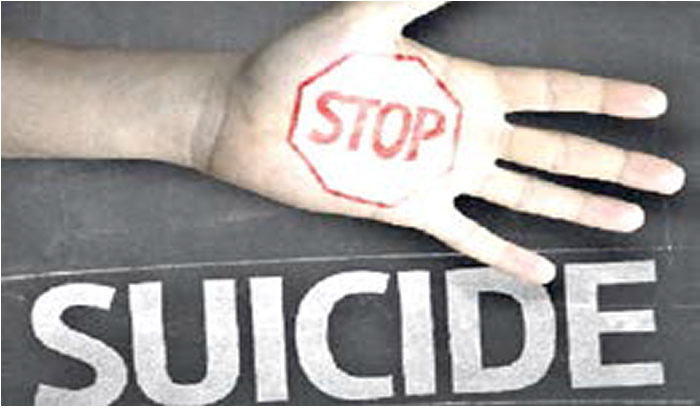
In Nigeria, the rate of suicide has increased drastically in the past few years. Cases of failed and successful suicide attempts proliferate and have become bothersome. In the last two years, no fewer than 80 cases of suicide were reported in Nigeria.
According to the World Health Organisation, suicide is the fourth leading cause of death among 15 to 29-year-olds and a serious global health issue that affects all ages, sexes, and regions of the world.
More than 70,000 people die from suicide every year and for every suicide case, there are more people who attempted suicide. A prior suicide attempt is the single most important risk factor for suicide in the general population, the WHO states.
WHO noted that globally, 77 per cent of suicides occur in low-and-middle-income countries with ingestion of pesticides, hanging and firearms being the most common methods of suicide. Knowledge of the most commonly used suicide methods is important to devise effective prevention strategies such as restriction of access to means of suicide.
In 2019, Nigeria had the highest rate of suicide in Africa and sixth globally with over 17, 000 lives lost to suicide in a year.
Last month, the Director of Programme Management, WHO Regional Office for Africa, Dr. Joseph Cabore, stated that in Africa, the ratio of psychiatrists to the population is 1:500,000 which is 100 times below the organisation’s recommendation and about 11 out of every 100,000 people die by suicide yearly, which is above the global average of nine per 100,000.
Cabore said, “Suicide is a public health issue across the world. Unfortunately, in Africa, mental health care has not received the attention it deserves. For instance, millions of people needing care do not have access to services.
“It is important to highlight that this situation is partly due to inadequate action by the government, policymakers, and communities to address the risk factors that contribute to death by suicide.”
In Lagos, there is a growing trend of individuals finding the popular Third Mainland Bridge as the best suicide spot. The latest was a female official of the Department of State Services, Adetutu Adedokun, who jumped over the bridge’s railing to plunge into the lagoon. In 2017,a medical practitioner, Dr Allwell Orji, had also plunged into the lagoon, ending his life. In September, the police in Oyo State stated that 10 suicide cases were recorded in three months. Other cases were reported in Edo, Osun, Anambra, Delta, Kwara, Rivers, Abuja, Nasarawa, Kogi, Benue, Ogun, Bauchi, and Adamawa states.
Most of the reported cases were linked to financial difficulties, societal pressure, depression, among other factors.
Mental health experts have identified several factors responsible for suicide with depression being the major cause. They call for interventions by government to stem the growing tide of suicide.
Commenting on the issue, a counselling psychologist, Prof Toba Elegbeleye, opined that several factors especially a change in socio-cultural expectation may be fuelling more suicides in Nigeria.
He noted that anyone who commits suicide must have attained a depressive state.
He added that economic changes, loneliness and lack of connection with friends and family, disappointment, and loss of loved ones could cause depression. The duration of depression, he noted, is usually two weeks, stating that if immediate action is not taken, it becomes aggravated leading to suicide.
Elegbeleye said, “The veritable facts are that culture is badly damaged. There is no serious family life and we are in a rat race to make ends meet, causing families to be separated all over the world.”
He called on individuals to maintain good relationships and social networks, adding that being self-confident and focusing on the brighter side of issues is a good way out of depression.
He added, “Take solace in what works for you rather than the negativities or the things yet to be achieved. Indulge in the positives and self-therapy. Don’t cut off your friends and family, so you can have easy access to them when you need to.”
Speaking further on the issue, Elegbeleye stressed that the inadequacies of the Nigerian government contributed to the increasing rate of depression. He stated that Nigeria is governed by people who are insensitive to the abysmal developmental indices of the country.
Elegbeleye believes that with a responsive and responsible government in place, the rate of suicide in the country will drastically drop.
The counselling psychologist said, “The government doesn’t champion providing citizens a living wage. Even the minimum wage of N30,000 can do nothing on today’s economic scale. Good governance is important. The government should listen to its citizens and be seen to lead the pack in terms of self-assessment and conduct.
“Leaders amass for themselves wealth at the expense of their citizens. In any polity where equity is not taken seriously, there will be infractions everywhere, including depression and the like. The government should serve by not being autocratic. If we are in a democratic society, then the rule of law must be superimposed upon everything we do. If the leadership is sensitive to the plight of its citizens and other issues, then things will get better. The issue of flooding and banditry are there and they have not been tackled over the years.
“In addition, the state of primary health care centres is ludicrous and doesn’t match up with the population. There must be a balance between the population and the facilities available in PHCs. Statistics should be available and attention should be paid to it.”
On her part, a psychiatrist, Dr Maymunah Kadiri, stated that the population of Nigeria is currently estimated to be over 200 million people but the number of available medical professionals is inadequate to cater to the health needs of the nation. The situation, she said, is direr for mental health, with one psychiatrist to every one million people in the country.
Furthermore, she noted that the psychiatrist-patient ratio in Nigeria is off the mark, thereby widening the mental health treatment gap.
She said, “In Nigeria, the prevalence of mental illness is 20 per cent. With a population of over 200 million, this translates to about 50 million Nigerians suffering from mental disorders with anxiety, depression, and drug abuse leading the chart. But this ratio can’t be majorly attributed to being the leading factor in the increase in the suicide rate. Some other factors responsible are economic issues, poverty, financial challenges, and insecurity among others.”
Other causes and triggers for suicide, she stated, are traumatic stress, substance abuse and impulsivity, loss or fear of loss, chronic pain and mental or physical illness, hopelessness, inability to access help, poor finances, overwhelming life situations, social isolation, and economic factors such as inflation.
She recommended for organisations as well as individuals to contribute to tailing down the rate of suicide by recognising the warning signs and lending a listening ear to people with suicidal thoughts.
Kadiri noted that speaking to such individuals about their feelings and encouraging them to seek professional help was a good step in the right direction.
She said, “I implore the government to pass the mental health bill into an act, strengthen economic supports, create protective environments, and improve access and delivery of mental health care. They should as well promote healthy connections, teach coping and problem-solving skills in schools by empowering teachers, identifying and supporting people at risk.
“There should be inclusion of mental health first aid training in our educational curriculum and policies that ensures all corporate organisations have employees’ assistance programme within the work environment should be implemented.”
On the solution to the rate of suicides from the Third Mainland Bridge, a former President, Nigerian Institute of Structural Engineers, Victor Oyenuga, stated that it wasn’t a structural issue but one bordering on mental health.
Responding to the suggestion for iron barricade to be erected at the Third Mainland Bridge to stem the growing tide of suicide there, the structural engineer said it was needless, as people on suicide mission would find alternative means to take their lives.
He said, “The government should look into the cause of suicide, organise sensitisation programmes to create awareness on the dangers of suicide. They should intensify that since it is a social issue. Engineering solutions will be more costly, moreover, it won’t stop anyone from committing suicide. They could decide to explore other options.”





